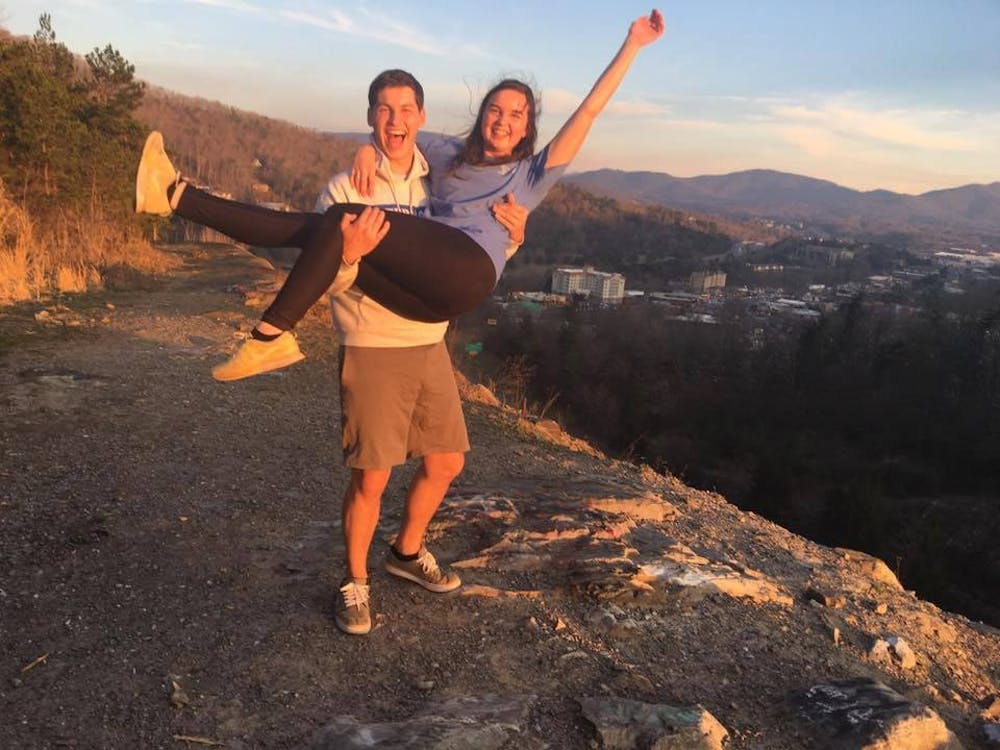In 1992, several University students founded an organization called Alternative Spring Break in order to provide students the opportunity to volunteer in communities both in and outside of the U.S. As the organization is much larger now, it continues to offer adventurous students the chance to do something worthwhile with their week off.
Prospective participants are asked to respond to several prompts and fill out basic contact information in order to be considered for ASB. Trip leaders decide which participants they’d like to take with them through a fairly lengthy application and selection process.
“There were two or three short response questions and lots of basic questions, just so they could get a feel of like who you are,” first-year Engineering student Emma Chamberlayne said. “[The application] wasn’t based on like classes or activities or anything. It was more just writing about yourself so that they could tell whether you’d fit in well with the vibe of a trip. You could rank all the trips in order of which ones you’d like to go to most, [but] personally, I didn’t really care where I went because I just thought it was a cool thing to do.”
Although ASB offers dozens of trips to its applicants, some trips attract more applicants than others.
“Most trips are between eight and 12 people, including the site leaders,” second-year College student and ASB trip leader Zach Schauffler said. “I think the perception of this being a selective thing is from people who choose to go on these big name trips — like to Costa Rica or something like that — but if you’re looking to try new things and go anywhere, you’ll definitely get a trip.”
ASB has trips to 32 locations planned for this year both domestic and international, including San Francisco, New Orleans, Puerto Rico and Costa Rica. Some are offered annually, but trip destinations vary a great deal because site leaders are allowed to propose new locations.
“There are certain trips that repeat every year, so you could easily jump on one of those, but if you’re feeling very passionate about one certain place, it’s all you,” Schauffler said. “This year, we’re going to Anza-Borrego Desert Park in southern California.”
While every trip is a service trip, each trip focuses on a different type of service. ASB divides its trips into five different service categories: medical, housing, environmental conservation, hunger and human services.
“Both trips — the one I did last year and the one I’m leading — are environmental conservation trips, so that means we’re working on the park with the park rangers, helping them with the tasks they need to do,” Schauffler said. “I really enjoy that kind of trip because you get to visit a unique area of the country and make it better with your time there, so you get to both enjoy it and improve it.”
Since applicants are able to choose which trips they’d like to go on, they are able to tailor their experience to ensure that the type of service they do on their trip is in accordance with their interests.
“Service is really important to me — I think I want to work for a nonprofit as a systems engineer — so like this seemed like a fun thing to do, and I’m interested in traveling, so this is a good way to combine the two,” Chamberlayne said. “You can do environmental service at the national parks ... they’re kind of roughing it for a week, and that was not as appealing to me because I don’t want to not shower for that long.”
Regardless of the work they’ll be doing or their destination, all ASB participants will return to Grounds knowing they’ve shared a unique experience with people they might not have met otherwise.
“I think the thing I’m most looking forward to is seeing how the group develops and watching how these eight people we’re bringing with us [will] start off probably pretty awkward with each other and, at the end of the week, [be] laughing and smiling and sharing inside jokes,” Schauffler said.







